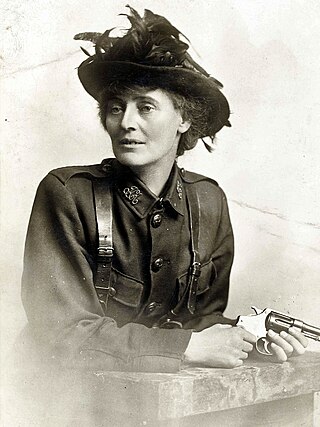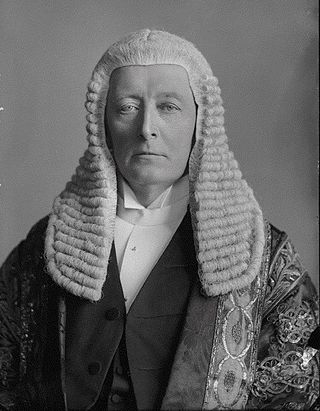
The Speaker of the House of Commons is the presiding officer of the House of Commons, the lower house and primary chamber of the Parliament of the United Kingdom. The current speaker, Sir Lindsay Hoyle, was elected Speaker on 4 November 2019, following the retirement of John Bercow. Hoyle began his first full parliamentary term in the role on 17 December 2019, having been unanimously re-elected after the 2019 general election.

Betty Boothroyd, Baroness Boothroyd, was a British politician who served as a member of Parliament (MP) for West Bromwich and West Bromwich West from 1973 to 2000. A member of the Labour Party, she served as Speaker of the House of Commons from 1992 to 2000. She was the first woman to have served as Speaker. By tradition, Boothroyd later sat as a crossbench peer in the House of Lords.

The Maastricht Rebels were British Members of Parliament (MPs) belonging to the then governing Conservative Party who refused to support the government of Prime Minister John Major in a series of votes in the House of Commons on the issue of the implementation of the Maastricht Treaty in British law.

Peter Leonard Brooke, Baron Brooke of Sutton Mandeville, was a British politician. A member of the Conservative Party, he served in the Cabinet under prime ministers Margaret Thatcher and John Major, and was a member of Parliament (MP) representing the Cities of London and Westminster from 1977 to 2001.

Alan Gordon Barraclough Haselhurst, Baron Haselhurst,, is a British Conservative Party politician who served as Member of Parliament (MP) for Saffron Walden from 1977 to 2017, having previously represented Middleton and Prestwich from 1970 to 1974. Haselhurst was Chairman of Ways and Means from 14 May 1997 to 8 June 2010, and later Chairman of the Commonwealth Parliamentary Association between 2011 and 2014. The oldest Conservative MP to stand down at the 2017 general election, he was created a Life Peer in May 2018, sitting in the House of Lords as Baron Haselhurst.

Sir John Marcus Fox MBE was a British Conservative Party politician. He served as the Member of Parliament (MP) for Shipley from 1970 to 1997. He was chairman of the 1922 Committee between 1992 and 1997.

Bruce Bernard Weatherill, Baron Weatherill, was a British Conservative Party politician. He served as Speaker of the House of Commons between 1983 and 1992.

Michael John Martin, Baron Martin of Springburn, was a Scottish politician who served as Speaker of the House of Commons between 2000 and 2009. A member of the Labour Party, he was the Member of Parliament (MP) for Glasgow Springburn from 1979 to 2005 and for Glasgow North East until 2009. He was elected as Speaker of the House of Commons in 2000, remaining in the office for nine years until his involuntary resignation in 2009.
Sir John Giles Dunkerley Shaw, known as Giles Shaw, was a British Conservative Party politician.

The 2009 election of the Speaker of the House of Commons occurred on 22 June 2009 following the resignation of Michael Martin as Speaker during the parliamentary expenses scandal. Martin was the first Speaker since Sir John Trevor in 1695 to be forced out of office. It was the first Speaker election since 11 May 2005, and the first contested election of a Speaker since 23 October 2000.

A vote of no confidence in the British Labour government, 1974–1979, of James Callaghan occurred on 28 March 1979. The vote was brought by the Official Opposition leader Margaret Thatcher and was lost by the Labour government by one vote, which was announced at 10:19 pm. The result mandated a general election that was won by Thatcher's Conservative Party. The last time an election had been forced by the UK House of Commons was in 1924, when Ramsay MacDonald, the first Labour prime minister, lost a vote of confidence. Labour politician Roy Hattersley later remarked that the vote marked "the last rites" of Old Labour. Labour did not return to government for another 18 years under New Labour. The BBC has referred to the vote as "one of the most dramatic nights in Westminster history".

The 1993 confidence motion in the second Major ministry was an explicit confidence motion in the Conservative government of John Major. It was proposed in order to ensure support in the British Parliament for the passing of the Maastricht Treaty. Due to previous defeats caused when Eurosceptic Conservative MPs voted with the opposition, the Government had to obtain support for its policy on the Social Chapter before the European Communities Amendment Act 1993 could come into effect and allow the United Kingdom to ratify the treaty. Dissenting Conservative MPs were willing to vote against the Government, but had to come into line on a confidence motion or else lose the Conservative whip. Only one eurosceptic MP was deliberately absent; and as a result, the motion passed by 40 votes and the United Kingdom ratified the Maastricht Treaty.
The 2000 election of the Speaker of the House of Commons occurred on 23 October 2000 following the retirement of Betty Boothroyd as Speaker. The election resulted in the election of Labour MP Michael Martin, who had served as Deputy Speaker since 1997. It was the first contested election since 27 April 1992.

The representation of women in the House of Commons of the United Kingdom has been an issue in the politics of the United Kingdom at numerous points in the 20th and 21st centuries. Originally debate centred on whether women should be allowed to vote and stand for election as Members of Parliament. The Parliament Act 1918 gave women over 21 the right to stand for election as a Member of Parliament. The United Kingdom has had three female Prime Ministers: Margaret Thatcher (1979–1990), Theresa May (2016–2019), and Liz Truss (2022). The publication of the book Women in the House by Elizabeth Vallance in 1979 highlighted the under-representation of women in Parliament. In more modern times concerns about the under-representation of women led the Labour Party to introduce and, decades later, abandon all-women short lists, something which was later held to breach discrimination laws.
In the United Kingdom, a parliamentary by-election occurs following a vacancy arising in the House of Commons. They are often seen as a test of the rival political parties' fortunes between general elections.

The 1971 election of the Speaker of the House of Commons occurred on 12 January 1971, following the retirement of the previous Speaker Horace King. The election resulted in the election of Conservative MP Selwyn Lloyd, formerly Chancellor of the Exchequer and Foreign Secretary. It was the first election with more than one nominee since William Morrison defeated Major James Milner in the 1951 election.

The 1951 election of the Speaker of the House of Commons occurred on 31 October 1951, following the 1951 general election and the retirement of the previous speaker Douglas Clifton Brown. The election resulted in the election of Conservative MP William Morrison. This was one of the few speaker elections held in the 20th century in which there was more than one nominee, and the first contested election of speaker since 10 April 1895.

The 1895 election of the Speaker of the House of Commons occurred on 10 April 1895, following the retirement of the previous Speaker Arthur Wellesley Peel. The election resulted in the election of Liberal MP William Court Gully by the narrow margin of 11 votes. It was the first contested Speaker election since 27 May 1839. The next contested election would not be for another 56 years, until 31 October 1951.

The election for the 158th Speaker of the House of Commons took place on 4 November 2019. Sir Lindsay Hoyle was elected with 325 votes in the final ballot, out of a total of 540 votes cast.
















